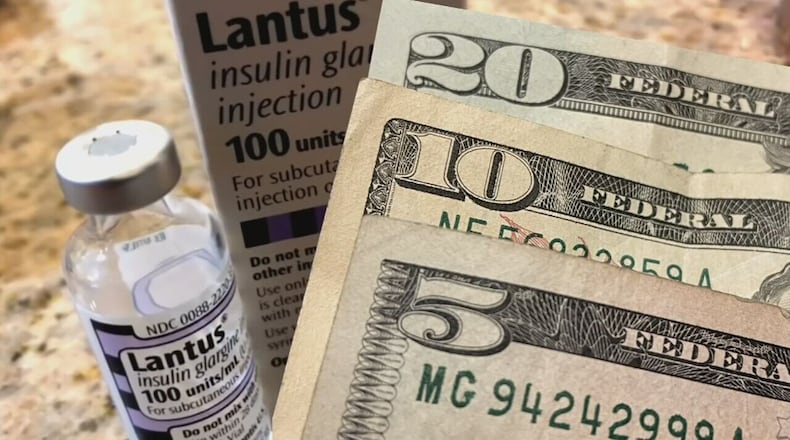Unaffordable insulin costs continue to burden Georgians despite efforts to increase access to the vital diabetes treatment, but U.S. Sen. Raphael Warnock is looking to provide relief.
Warnock, along with Sen. John Kennedy (R-La.) partnered on a report released on Tuesday — World Diabetes Day — urging Congress to pass the Affordable Insulin Now Act of 2023, which would extend a $35 insulin copay cap to those with private insurance.
In the report, “Insulin Deserts: The Urgency of Lowering the Cost of Insulin for Everyone,” 813 U.S counties concentrated in the South were classified as “insulin deserts.”
Insulin deserts were defined as counties that have a high rates of uninsured individuals and diabetes. In these areas, people were more likely to be lower-income, less likely to have college degrees and internet access, and more likely to be people of color.
According to the report, 71% of Georgia’s uninsured population lives in an insulin desert, with 105 of the state’s 159 counties qualifying as insulin deserts under the report’s definition.
Dr. Chivon Stubbs, a family medicine physician at Whitefoord Inc., a provider of charitable care in Atlanta, says that she frequently hears patient concerns about insulin affordability.
“It’s definitely something that patients worry about because it’s their health,” Stubbs said. “They can’t afford to get medication that’s essential for their health issues.”
Stubbs says that she has heard from patients that skip and space out doses of insulin, gauging this practice by how high their blood sugar levels are. Some have even turned to getting treatments off of the street.
“I’ve heard all kinds of things from patients trying to have access to medications,” she said.
More than 37 million people, an estimated 11% of the population, are living with diabetes in the United States, according to the American Diabetes Association. This means that the pancreas does not produce enough insulin (type 1 diabetes), or the body does not respond to insulin properly (type 2 diabetes).
In January, Congress passed legislation capping insulin costs for seniors and people with disabilities on Medicare at $35 a month. An effort to extend the cap to private insurance holders failed in the Senate, however.
According to the report, 26 states have created their own cap on insulin copays for those on private insurance, but Georgia is not among them. Here, those who are not enrolled in Medicare can pay high costs to fill their insulin.
“It’s disheartening to be in a space where people can’t get access to basic medications that will improve their health,” said Stubbs. “There are patients having trials and tribulations with obtaining these medications because they are just not cost effective.”
Along with a $35 cap for those with private insurance, Warnock’s bill, which has been referred to the Senate Committee on Health, Education, Labor, and Pensions, would create a program for uninsured patients to receive insulin for no more than $35 a month. Uninsured patients now pay an average of $996 annually for insulin, compared to $456 spent by patients with private insurance and $449 spent by Medicare patients.
Insulin manufacturers, including Eli Lilly, Novo Nordisk and Sanofi, have taken measures to cut prices of their products in 2023.
Diabetes costs Americans over $410 billion each year. The cost of prescription insulin is far higher in the U.S. than in other countries, which has led some patients to ration their supply. Skipping or skimping on doses is more common in underserved communities and can result in serious health effects. According to a 2022 report published in the Annals of Internal Medicine, over 1 million Americans are estimated to have rationed their prescribed insulin in the last year.
“Insulin should not be expensive. It should not be unaffordable,” Warnock said. Speaking on the pharmaceutical firms that have voluntarily reduced prices on insulin, Warnock added, “I don’t want to see us look up a few years from now and corporations play bait and switch.”
The Atlanta Journal-Constitution and Report for America are partnering to add more journalists to cover topics important to our community. Please help us fund this important work at ajc.com/give
Credit: Arvin Temkar/AJC
Credit: Arvin Temkar/AJC
Credit: Alex Brandon/AP
Credit: Alex Brandon/AP
About the Author
Keep Reading
The Latest
Featured



